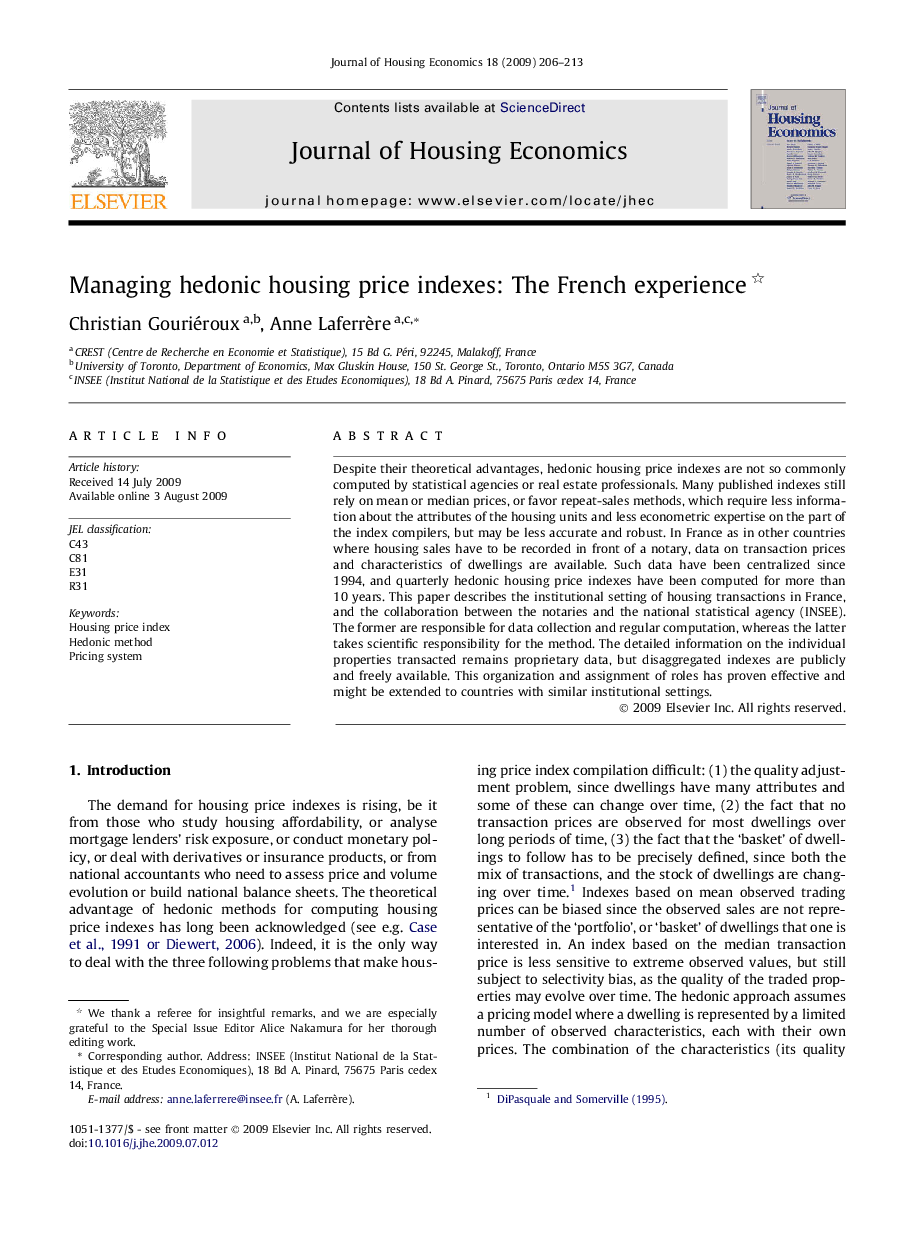| Article ID | Journal | Published Year | Pages | File Type |
|---|---|---|---|---|
| 962131 | Journal of Housing Economics | 2009 | 8 Pages |
Abstract
Despite their theoretical advantages, hedonic housing price indexes are not so commonly computed by statistical agencies or real estate professionals. Many published indexes still rely on mean or median prices, or favor repeat-sales methods, which require less information about the attributes of the housing units and less econometric expertise on the part of the index compilers, but may be less accurate and robust. In France as in other countries where housing sales have to be recorded in front of a notary, data on transaction prices and characteristics of dwellings are available. Such data have been centralized since 1994, and quarterly hedonic housing price indexes have been computed for more than 10 years. This paper describes the institutional setting of housing transactions in France, and the collaboration between the notaries and the national statistical agency (INSEE). The former are responsible for data collection and regular computation, whereas the latter takes scientific responsibility for the method. The detailed information on the individual properties transacted remains proprietary data, but disaggregated indexes are publicly and freely available. This organization and assignment of roles has proven effective and might be extended to countries with similar institutional settings.
Keywords
Related Topics
Social Sciences and Humanities
Economics, Econometrics and Finance
Economics and Econometrics
Authors
Christian Gouriéroux, Anne Laferrère,
